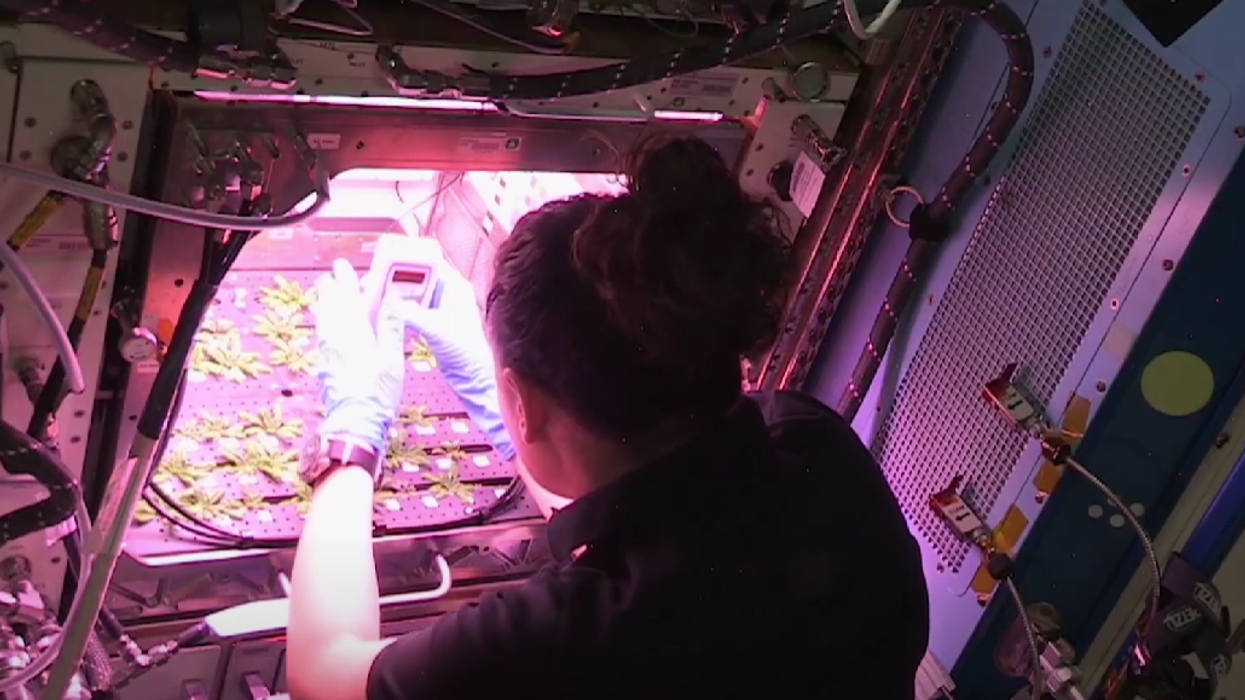
Image credit: YouTube screenshot

Drug startup LambdaVision has set its sights on the stars as it attempts to develop a solution to genetic blindness. The most surprising part of the company's ambitious project is that the research is set to take place in space.
According to the company's website, "LambdaVision is developing the first protein-based artificial retina to restore meaningful vision for patients who are blind or have lost significant sight due to advanced retinal degenerative diseases, including retinitis pigmentosa (RP) and age-related macular degeneration (AMD)."
"Both RP and AMD lead to the breakdown and loss of cells in the retina," the company continued. "By using proteins similar to the visual pigment rhodopsin that is naturally found in our eyes, LambdaVision’s protein-based artificial retina mimics the light-absorbing properties of human photoreceptors replacing the function of these damaged cells in the retinas of blind patients."
The company was founded in 2009 with the lofty mission of forming a protein-based artificial retina for those who have various forms of genetic blindness, according to the New York Post. Macular degeneration is apparently the leading cause of blindness in those over the age of 55.
In order to artificially replicate an organic retina — the layer of tissue at the back of the eyeball responsible for the images we see — researchers will have to stack 200 paper-thin layers of light-sensitive protein in a polymer mesh, according to a report from Bloomberg.
"LambdaVision’s partnership with Space Tango, which secured >$7.7 million in funding from NASA, and its work with the International Space Station (ISS) U.S. National Laboratory has allowed the company to successfully validate a microgravity manufacturing method for producing LambdaVision’s artificial retina on the ISS," according to the company.
"LambdaVision has recently secured two new NASA SBIR grants focused on scaling and machine learning, and the company will continue to explore new frontiers related to in-space manufacturing."
"LambdaVision’s artificial retina is one of the first technologies being evaluated on the ISS that has potential for clinical use, and the established microgravity manufacturing processes, quality control methods, and laboratory techniques provide a foundation for future clinical research in space," the company continued.
However, it still remains to be seen what the specific timeline is for such research. Bloomberg noted that the International Space Station could be decommissioned after 2030, which raises questions about where such research will take place. Private companies are currently trying to come up with an alternative space-based lab that would allow research and studies to be carried out for the creation of breakthrough drugs.
Drug companies have already been leveraging space as a way to carry out protein crystallization experiments. Many of these experiments have been focused on creating disease-promoting protein crystals, which are subsequently used to develop drugs that attach to the crystal's unique shape.
Like Blaze News? Bypass the censors, sign up for our newsletters, and get stories like this direct to your inbox. Sign up here!